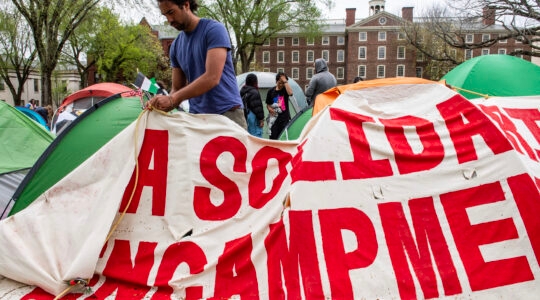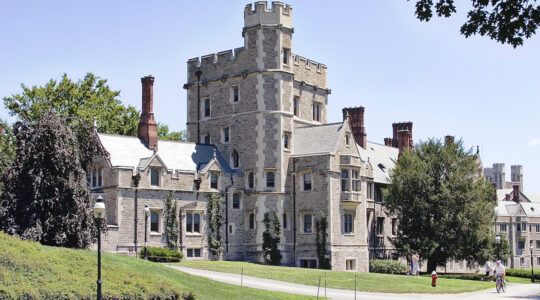WASHINGTON (JTA) — Israel is not in full compliance with the minimum international standards to prevent human trafficking, but it is making efforts to bring itself up to par, the U.S. State Department said.
Israel’s was classified in the State Department’s annual report on human trafficking released Monday as a "tier two" country, the second ranking in four possible categories. It was the fifth year in a row that Israel has received the tier two ranking after improving in 2007.
According to the report, men and women, mostly migrants, are subjected to forced labor and sex trafficking in Israel. Workers from Thailand, China, Nepal, the Philippines, India, Sri Lanka and Romania legally and voluntarily come over for temporary work in construction, agriculture and as home health care providers.
Some, the report said, "subsequently face conditions of forced labor, including through such practices as the unlawful withholding of passports, restrictions on movement, inability to change or otherwise choose one’s employer, nonpayment of wages, threats, sexual assault and physical intimidation."
The report also said many agencies that recruit laborers to come to Israel require them to pay $4,000 to $20,000, putting them at risk for trafficking practices until the debt is paid.
Citing Israel’s Interior Ministry, the report said that 14,000 migrants crossed into the country through the Sinai in 2010, up from 5,000 the previous year. The report said Bedouin groups in the area kept many of the migrants captive in the Sinai and "an unknown number of them were forced into sexual servitude or labor to build homes and serve as domestic workers."
Additionally, the report found that women from the former Soviet Union and China are forced into prostitution, but noted that the number has dropped since Israel passed an anti-trafficking bill in 2006.
The report recommended that Israel "significantly increase prosecutions, convictions and punishment of labor trafficking offenders," while noting it kept up its strong law enforcement progress against sex trafficking. The government also runs two shelters for male and female trafficking victims, although international organizations said both lacked a sufficient number of beds for the total number of victims in the country.
The report analyzed 184 countries and identified 23 nations as failing to comply with international standards, up from 13 in 2010.
JTA has documented Jewish history in real-time for over a century. Keep our journalism strong by joining us in supporting independent, award-winning reporting.





